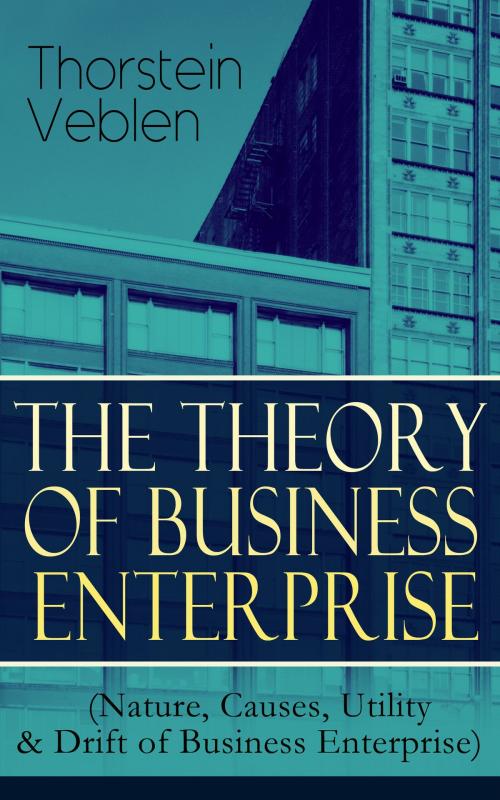THE THEORY OF BUSINESS ENTERPRISE (Nature, Causes, Utility & Drift of Business Enterprise)
A Political Economy Book
Nonfiction, Social & Cultural Studies, Political Science, Politics, Economic Conditions, Business & Finance, Economics, Theory of Economics| Author: | Thorstein Veblen | ISBN: | 9788026850083 |
| Publisher: | e-artnow | Publication: | January 30, 2016 |
| Imprint: | Language: | English |
| Author: | Thorstein Veblen |
| ISBN: | 9788026850083 |
| Publisher: | e-artnow |
| Publication: | January 30, 2016 |
| Imprint: | |
| Language: | English |
This carefully crafted ebook: "THE THEORY OF BUSINESS ENTERPRISE (Nature, Causes, Utility & Drift of Business Enterprise)" is formatted for your eReader with a functional and detailed table of contents. The Theory of Business Enterprise is a political economy book that looks at the growing corporate domination of culture and the economy. At its heart The Theory of Business Enterprise is an analysis of two intertwined but clashing motivations; that of business and that of industry. Business is the making of profits. Industry is the making of goods. "The captains of industry" curtailed production in order to keep prices and profits high. The worst fears of businessmen was a "free run of production" which would essentially collapse all profits. In this book, which was published in 1904 during the height of American concern with the growth of business combinations and trusts, Veblen employed his evolutionary analysis to explain these new forms. He saw them as a consequence of the growth of industrial processes in a context of small business firms that had evolved earlier to organize craft production. Thorstein Veblen (1857-1929) was an American economist and sociologist. He is well known as a witty critic of capitalism. Veblen is famous for the idea of "conspicuous consumption." Conspicuous consumption, along with "conspicuous leisure," is performed to demonstrate wealth or mark social status. Veblen explains the concept in his best-known book, The Theory of the Leisure Class. Within the history of economic thought, Veblen is considered the leader of the institutional economics movement. Veblen's distinction between "institutions" and "technology" is still called the Veblenian dichotomy by contemporary economists.
This carefully crafted ebook: "THE THEORY OF BUSINESS ENTERPRISE (Nature, Causes, Utility & Drift of Business Enterprise)" is formatted for your eReader with a functional and detailed table of contents. The Theory of Business Enterprise is a political economy book that looks at the growing corporate domination of culture and the economy. At its heart The Theory of Business Enterprise is an analysis of two intertwined but clashing motivations; that of business and that of industry. Business is the making of profits. Industry is the making of goods. "The captains of industry" curtailed production in order to keep prices and profits high. The worst fears of businessmen was a "free run of production" which would essentially collapse all profits. In this book, which was published in 1904 during the height of American concern with the growth of business combinations and trusts, Veblen employed his evolutionary analysis to explain these new forms. He saw them as a consequence of the growth of industrial processes in a context of small business firms that had evolved earlier to organize craft production. Thorstein Veblen (1857-1929) was an American economist and sociologist. He is well known as a witty critic of capitalism. Veblen is famous for the idea of "conspicuous consumption." Conspicuous consumption, along with "conspicuous leisure," is performed to demonstrate wealth or mark social status. Veblen explains the concept in his best-known book, The Theory of the Leisure Class. Within the history of economic thought, Veblen is considered the leader of the institutional economics movement. Veblen's distinction between "institutions" and "technology" is still called the Veblenian dichotomy by contemporary economists.















